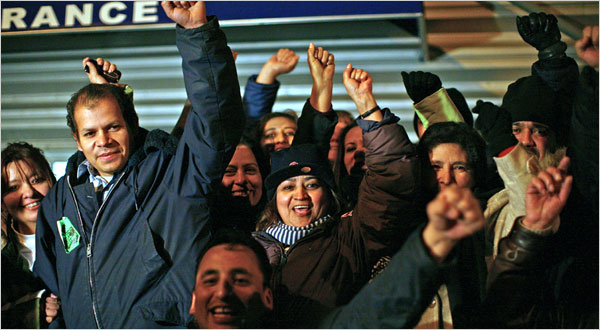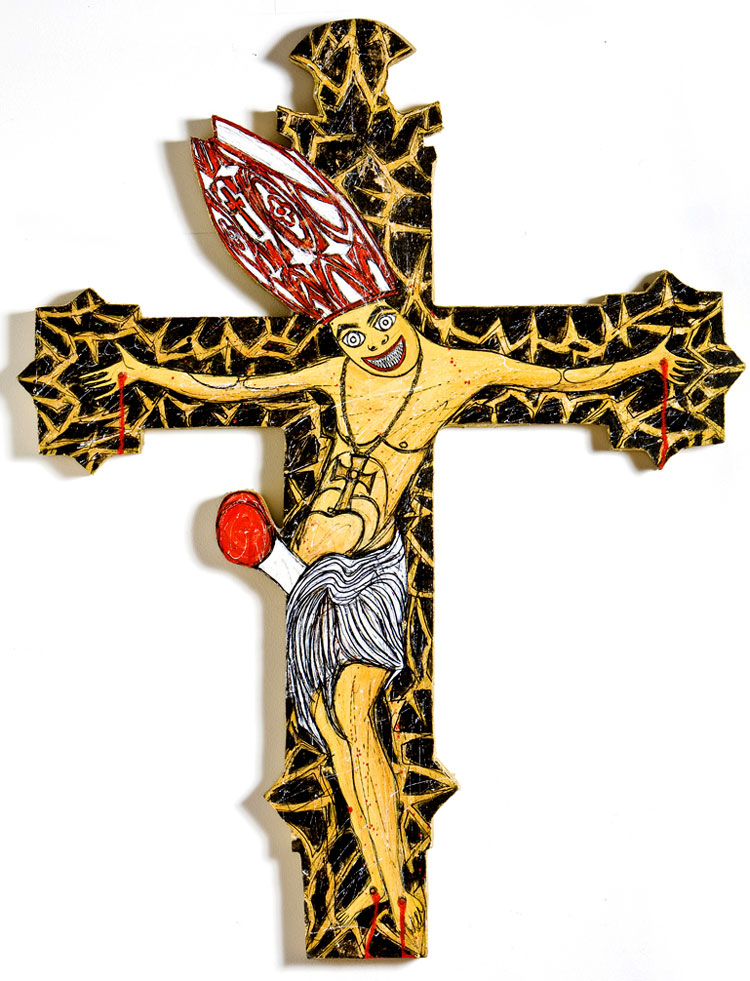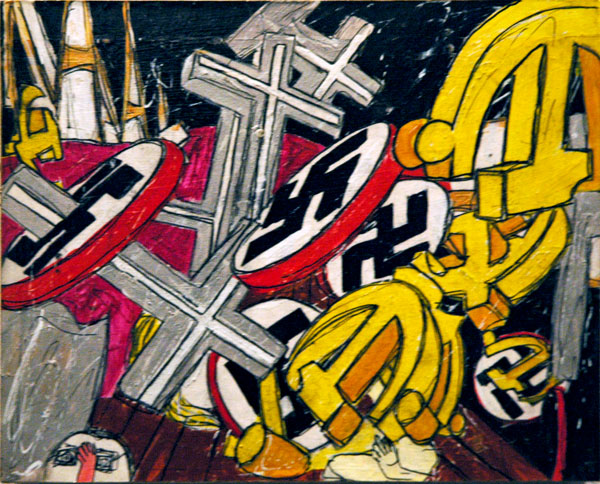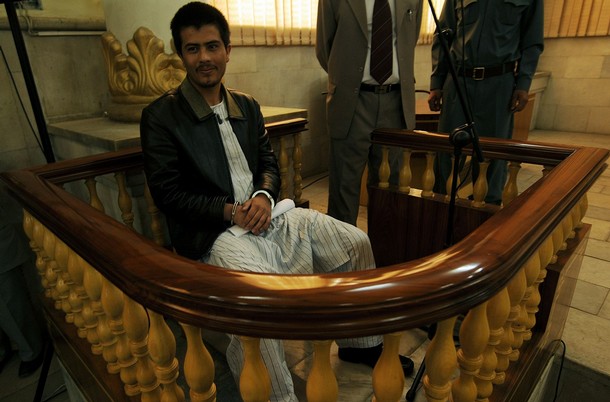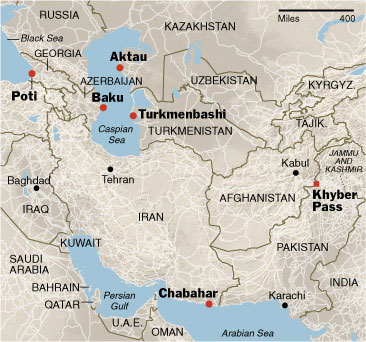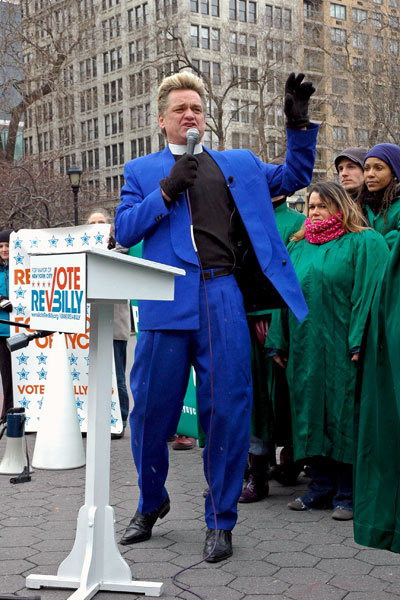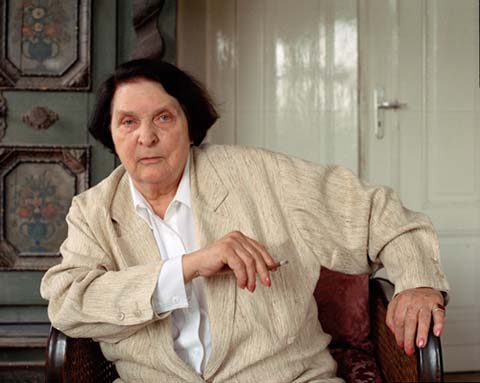
Maria von Maltzan
accepted no imitations
It's her birthday.
Maria Helene Françoise Izabel Gräfin von Maltzan, Freiin zu Wartenberg und Penzlin, was born on her wealthy family's Silesian estate, Schloss Militsch, north of Breslau on March 25, 1909. She died in Berlin's Kreuzberg district in 1997, after a very long and very rich life as a rebel, and one of the righteous - among all nations and for all people.
I first came across her heroic story in some incredible segments which peppered an excellent book I read last year, "The Fall of Berlin", by Anthony Read and David Fisher. I must have been impressed, because I noted the date of her birth in my pocket calendar and later transferred the information when I bought one for 2009. It probably helped that I realized that this year would be her 100th anniversary.
Von Maltzan's rebellion first became a public one with a decision, uncharacteristic for a girl in her society, to study biology, botany and anthropology. The righteousness was probably always there, but when she completed her doctorate in the natural sciences in the fateful year 1933 she almost immediately began her involvement in what was only the first of many underground anti-Nazi resistance movements to follow. She was very young, a part of a Bohemian circle in Munich, but she soon began illegally smuggling information out of the country.
Her lack of enthusiasm for the new regime alone would have been enough to trash a chance for any appointment with a scientific or academic institution, and none was to follow - ever. Von Maltzan began what would become a long career of what the world's conventionally-successful would call underemployments. She survived on money earned as a translator, a free-lance journalist and a lecturer. She also cared for horses and worked as a stunt rider for Bavaria Film. When she moved to Berlin in 1935 she worked in publishing, later as a postal verifier and then with the German Red Cross assistance service.
During the war she completed studies in veterinary medicine, all the while carrying messages and leading refugees through the sewers of Berlin toward freedom, falsifying papers, sheltering Jews and other fugitives (both in her own apartment and elsewhere), and personally assisting many of them in fleeing the country, whether, as in "Action Swedish Furniture", inside crates marked "Schwedenmöbe" or personally conducting some across the Bodensee (Lake Constance) to safety in Switzerland. In the midst of her underground activities she managed to remain close to both the conservative Kreisau Circle and the Communists.
During the last months of the war, inside a Berlin now leveled by allied bombs, Maltzan continued to help both refugees and deserters, and she organized a private soup kitchen for abandoned forced foreign laborers in the back court of her apartment house in Wilmersdorf.
I'm leaving out the story of three marriages (two to the man she hid from the Gestapo inside her couch for years) and the death of a child. But there was much more. Most of the heavy personal cost of von Maltzan's heroic exertions and incredible acts of courage were performed within a world whose restraints and terrors we can hardly imagine. We also won't ever know the full nature and extent of what she suffered both before and after 1945.
After the war, her family members dead or scattered, and her home now inside Poland, she managed to found a veterinary practice, working first for the Soviet occupiers and after that for the British. But she later lost her license because of a drug dependency and her need for psychiatric care.
She slowly regained her personal and professional independence, first traveling with a circus, later working in the Berlin Zoo, always caring for animals. She also managed to get employment as a substitute for vacationing veterinarians.
She eventually settled near the Kurfürstendamm in Berlin and opened a thriving veterinary practice which was patronized by both pet-owning celebrities and their equivalents in the red-light district. In 1981 she moved to Berlin-Kreuzberg, bringing her practice with her. She treated the animals brought to her by the punks in her neighborhood for free. While outwardly she might appear harsh and ill-tempered, inside she was a pushover for the victim, the vulnerable and the downtrodden. She readily chose to defend the relatively powerless individuals and multitudes who were crowded into her district, foreigners or outsiders of all kinds, from corporations, police and politicians. She told an interviewer:
I'm quite engaged in social things now because this part of Berlin is a perfect slum. They don't like me to say it. I really stand up for this part of Berlin, Kreuzberg. They've shoved everybody into this area - Turks, colored people, Poles, everyone stuck into this corner! We have houses with eight flats on one floor with one w.c. on the staircase. The police, you can't imagine how brutal they are down here, beating. If I see it - because you can see I have big corner windows with a clear view - I go down and get hold of the police and say, "Why are you beating these people?" And the silly police say to me, "Perhaps you like colored here!" "Well, " I say, "I prefer them to helmets!"
In 1987 she was awarded the title "Righteous Among the Nations" by Yad Vashem. In this undated video interview conducted in her [killer] apartment von Maltzan says:
Because my mother was unjust I have a very high feeling of justice. That's the real matter of the whole thing. That's why I'm furious with Israel; they wanted to give me a eucalyptus tree, and I could get a medal pricked to my breast! Such things I don't really care for.
And they said to me they wanted to make a big kickup for me in Bonn, but the letter inviting me for this arrived the day after the attack on Sidon [she mentioned rockets and red phosphorus]. I wrote back saying that all my life I've tried to be for the peaceful co-existence of all people, of all colors and all regligions, and I don't see that Israel has anything to do with these my ideas, and so I don't think I want a medal from you. I didn't go.
Maria von Maltzan died November 12, 1997, in Berlin. She had published her memoirs, "Schlage die Trommel und fürchte dich nicht", a little over ten years earlier, but they have not yet been translated into English.
NOTE: There is a more extensive citation in the German Wikipedia, from which I've taken most of my account here.
[image from gayblock]
